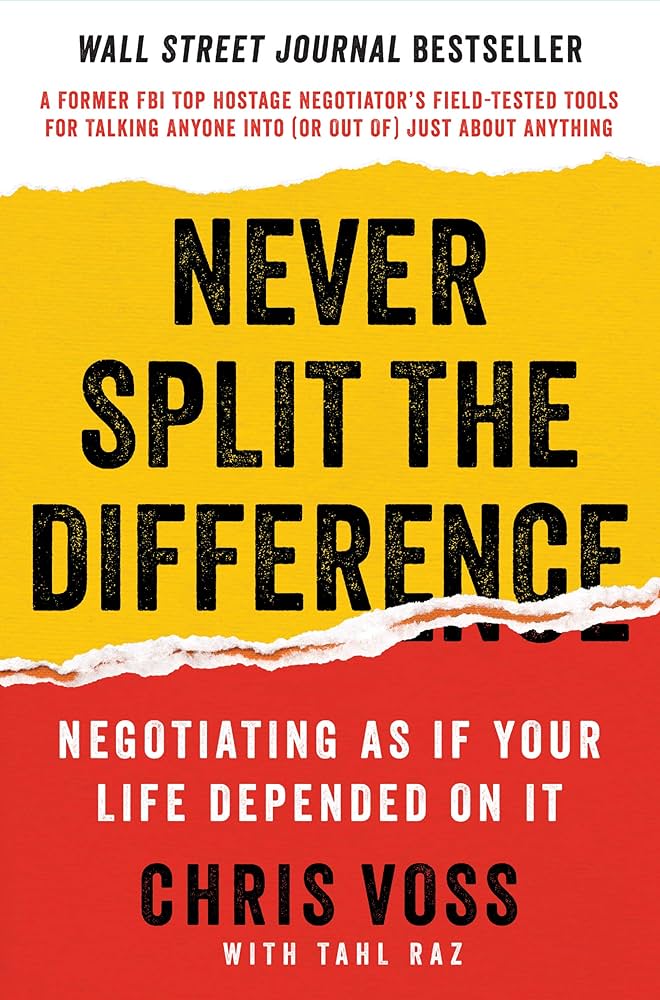Office Conflicts/Politics
- To Rephrase Communications Better: The Formalizer by Goblin.tools. Get a concrete explanation demo here.
- Ask A Manager
- A website dedicated to anything related to management (very general).
- Udemy
- Many use Udemy to learn coding, but it also has a vast repertoire for learning soft skills.
- Check if your university or employer provides free training through Udemy already.
- Find a video which suits your needs, and learn from an expert.
Office Politics

I. The Basics
Politics in Neurotypical Environments
Understand the Environment:
Get to know the political landscape in your organization or community. Understand formal and informal power dynamics, key players, alliances, and potential conflicts. Find creative ways to avoid conflict at all costs without sacrificing your position.
Build Relationships:
Cultivate relationships with people across different levels and departments. Networking is crucial in politics. Building trust and rapport with others can help you gain support and access valuable information.
Communication Skills:
Develop strong communication skills, including active listening, persuasion, and negotiation. Be clear and concise in your messages and adapt your communication style to different audiences.
Emotional Intelligence:
Understand and manage your emotions effectively, and be aware of others’ emotions. This can help you navigate sensitive situations and build strong relationships. Part of this could mean exposing yourself to media that you would not normally consume.
Strategic Thinking:
Think strategically about your goals and how to achieve them within the political context. Consider the potential consequences of your actions and anticipate the reactions of others.
Cognitive Flexibility and Adaptability:
Be flexible and willing to adapt to changing circumstances. Politics can be unpredictable, so it’s important to be able to pivot when necessary. Expand your toolset for addressing challenges in multiple ways so that you can produce results, regardless of the factors which govern the decision making behind those around you.
When you have a goal in mind:
Assess the values, personality, and mindset of the people with the authority to grant that change.
Take a look at different strategies which would produce the outcome you desire, what you’re willing to contribute to make it happen, and take stock of the possible consequences that comes with each approach. Remember that doing nothing is a strategy too.
Play your best response, even when the choices you have available to you range from bad to worst.
Ethical Considerations:
Maintain ethical standards in your interactions with others. Building a reputation for integrity and trustworthiness reinforces your political effectiveness in the long run.
As a neurodivergent individual, it’s crucial to recognize the inclination to elevate ethical conduct to unsustainable levels. Overprioritizing ethics may result in challenges discerning conflicts, prioritizing them, and effectively navigating the environment. Given that neurodivergent individuals are more susceptible to moral injury, it’s imperative to develop specific strategies to mitigate the risk of exposure to trauma. Moreover, it’s essential to navigate social dynamics without allowing decisions to be driven by fear of experiencing moral injury.
Stay Informed:
Keep yourself informed about relevant issues, developments, and trends. Knowledge is power in politics, so staying up-to-date can give you a competitive edge. Notice differences in personalities and values that guide how others respond. Learn to distinguish the difference between isolated incidents and behavioural patterns.
Seek Mentors:
Find mentors or trusted advisors who can offer guidance and support as you navigate political situations. Learn from their experiences and seek their input when facing challenges.
Practice Patience and Perseverance:
Navigating politics can be challenging and sometimes frustrating. Practice patience and perseverance, and don’t be discouraged by setbacks. Keep focused on your goals and continue to learn and grow from your experiences.
By focusing on these areas and continuously honing your skills, you can become more adept at navigating politics and achieving your objectives effectively.
II: Changing Your Media Exposure
Understand Anti-Collaborative People
Read self-help books that would resonate with the people you struggle to work with most. Learning about people and value systems you disagree with is an important part of sharing a world with others.
I. Indirect/Female Aggression and Bullying
Healthy Gamer (aka Dr.K) is a BIPOC and Neurodivergent Harvard Psychiatrist with some tips on spotting and navigating aggression that we tend to observe in women:
II. Living With Sharks and Snakes
Understanding “assertive” and “strategic” colleagues in the workplace is essential for navigating professional dynamics effectively. Some individuals prioritize competition and personal advancement, while others may use subtle influence to achieve their goals.
Recognizing these behaviors allows you to set boundaries, communicate strategically, and foster positive working relationships. It also helps in managing workplace politics, resolving conflicts, and maintaining your professional integrity while ensuring your contributions are recognized and valued, something which marginalized people disproportionately struggle with.
Ironically: Sharks (the fish 🦈) and snakes (the reptile 🐍) do not have a bone to pick with humans, unless they’re desperate for food. During the Roman Empire, lions in the coliseum actually had to be starved. As animals, they just want to be left alone, which is fair.
Suits
Suits is a legal drama (2011–2019) about Mike Ross, a brilliant college dropout who lands a job at a top New York law firm despite never attending law school. He works under Harvey Specter, a sharp and charismatic lawyer.
Known for its wit and stylish portrayal of corporate law, the show follows high-stakes cases, office politics, and relationships in a competitive workplace environment.
Louis:
- His Problem: Emotional dysregulation and impulsive reputation.
- Underlying Lesson: He works more than anyone, most technically inclined as a lawyer, and brings in more money than any other employee, but his character is designed to be disrespected. Can you tell why?
Harvey:
- Teaches viewers: How to spot deceit, red flags, and adapt your expectations of what you can get from a situation based on the personalities involved. Pay attention to the advice he gives his mentees throughout the show; these are intentionally added into the show’s dialogue for viewers.
- Notice: His positive reputation and influence are not impacted by his insufferable personality, how little money he brings in, or the fact that he’s not even a partner. So why do people respect him in this work culture?
Jessica: An important character of colour in a male-dominated field.
- Teaches viewers: How to defend yourself when you’re an “only” in a field like law and finance, how you can affect change and lift other marginalized groups up without losing yourself in the process, when and how you’re allowed to lash out and express yourself as an “only”.
- Relate: When you’re an “only” you’re not usually allowed to express rage or have honest conversations about privilege. What makes Jessica different and relatable on screen? Writers give her grace in writing scenes where she responds to her subordinates’ sense of entitlement and privilege, how she defends, herself, the risks she criticizes, and the comments she makes about Louis and Harvey, as well as why.
Chris Voss
A former FBI hostage negotiator, entrepreneur, and author known for his expertise in negotiation tactics. He served as the FBI’s lead international kidnapping negotiator and later founded The Black Swan Group, a consulting firm that teaches negotiation strategies for business and personal success.

Voss is best known for his book Never Split the Difference: Negotiating As If Your Life Depended On It, where he shares practical techniques drawn from his experience in high-stakes negotiations. If you prefer audio, you can listen to his perspective on YouTube here.
His approach emphasizes emotional intelligence (aka “tactical empathy”) and psychological principles to achieve better outcomes in negotiations. His advice and insights on human behaviour can be used ethically to communicate more effectively and spot deception, but it can also be used to control others. In his case, hostages.
Be mindful with how you apply his insights into human cognition and whether you start relying on his tips for masking your neurodivergence, as masking often comes with significant adverse health effects for neurodivergent folks.
48 Laws of Power By Chris Greene

The 48 Laws of Power by Robert Greene is a guide to understanding, perhaps even mastering, certain aspects of power dynamics by introducing historical examples and strategic principles.
Adopting the psychological insights into human behaviour 48 Laws of Power by literal and interpretation might conflict with your moral values… It may even misrepresent the many ways power operates in social environments.
Reading it can still be valuable for several reasons:
Awareness & Defense – Understanding the strategies others might use —- whether ethical or not—helps you recognize manipulation, office politics, and some versions of power dynamics before they impact you.
Strategic Thinking – Even if you choose not to apply its principles, the book gives one publicly available approach to think critically, anticipate challenges, and navigate complex social environments.
Adaptability – Success comes in many forms, and exposure to different perspectives broadens your ability to engage with a wide range of people, from corporate leaders to competitive peers.
Confidence & Boundaries – Knowing one approach to obtaining power, often which has been used historically to oppress and control marginalized groups can initiate processes for individuals to build healthy responses and alternatives.
Unlearning Trauma - Everyone has a bad side. For those who are predisposed to aspects of its approach subconsciously, whether as a survival mechanism or from how someone was raised, this book can also help individuals identify and unlearn unwanted behaviours.
Is this the only way to understand power? No. You could argue Michelle Obama’s book The Light We Carry is the go-to book to help marginalized groups understand power. NPR’s show on Power Aversion could be your basis. The book’s name is just that – a name.
Ultimately, reading Greene’s book does not mean adopting its philosophy– it just means equipping yourself with knowledge to make informed choices about how some people conceptualize and obtain certain facets of power, whether they are choosing to act like this or not.
The Art of War (孫子兵法) by Master Sun Tzu
The Art of War is a timeless military treatise from 5th century China which provides strategic principles for warfare, leadership, and competition. It focuses on intelligence, adaptability, deception, and psychological tactics to achieve victory, while also minimizing conflict.
Though originally written for military use, its insights are both widely read, making it relevant, and are widely applied across business, politics, and for navigating workplace politics today. The original text consists of thirteen brief chapters, but like many classic works (e.g., the Bible), modern editions are often supplemented with extensive analysis and interpretation. For these reasons, the quality of the edition depends on both the translation and use case analysis.
Inappropriate Workplace Interactions
Many studies document underpinning the movement for supported employment demonstrate that neurodivergents are more productive than neurotypical counterparts. Some individuals argue that we’re more productive because we burn ourselves out overcompensating to fit in. Others argue that our unique abilities allow us to excel as specialists in our area, compared to neurotypicals, offering strengths as generalists. It is possible that the answer depends on context and can be explained by a combination of both. Nevertheless, neurodivergent people are disproportionately likely to be targeted in a workplace environment.
II. Alternative Strategies
III. Red Flags
Be on the lookout for these general red flags:
- Micromanagement
- Constantly monitoring your every move, excessively checking your work, and providing unnecessary scrutiny can be a sign of a manager trying to create a stressful environment.
- Isolation
- Excluding you from important meetings, decision-making processes, or team activities can be a way to make you feel isolated and undervalued and signalling that message to others in the workplace.
- Unreasonable Expectations/Changing Goalposts
- Setting unattainable goals or constantly raising performance standards without providing the necessary resources or support is a classic tactic to set you up for failure.
- Inconsistent Feedback
- Providing inconsistent or unclear feedback, making it difficult for you to understand expectations or improve your performance.
- Public Shaming
- Criticizing your work or performance in public or in front of colleagues and customers, particularly when de-emphasizing or omitting constructive feedback entirely.
- Withholding Information
- Keeping you in the dark about important matters or changes that may affect your job can create a sense of insecurity.
- Sabotaging Opportunities
- Deliberately preventing you from taking on new projects or opportunities for growth can be a way to hinder your professional development.
- Undermining Your Efforts
- Discrediting your work, taking credit for your ideas, or spreading rumors can be signs of a toxic manager trying to undermine your credibility.
- They may also take control of the narrative surrounding your work by over-emphasizing your mistakes and treating your adequate or stellar contributions as unrepresentative exceptions.
- Chipping at your self confidence overtime so that your feel less and less comfortable asserting your value added, overemphasize your mistakes when you reflect on your work yourself, and generally start to agree with them.
- You may begin making mistakes you did not start off making because your mind is overly anxious, rather than present, at work. You find yourself unable to stop thinking about work during your days off so you experience a decline in cognitive capacity which affects your ability to do your best.
IV. Responding to Red Flags
Beyond dusting off your resume and avoiding certain individuals at work, you can focus on the strengths of the people you’re working with, develop a strategy that involves better timing while you position yourself (ex: temporarily sticking it out, taking this as an opportunity to develop your reputation as a flexible person). If it’s a classic case of not being respected (doormat), figuring out ways to re-brand when people dump things on you.
What We Want:
- Empowerment and Trust
- Trusting employees to manage their tasks independently.
- Allowing autonomy and decision-making within their roles.
- Inclusion and Team Collaboration
- Including employees in important meetings and decision-making processes.
- Fostering a collaborative and inclusive team environment.
- Realistic Expectations and Support
- Setting achievable goals with the necessary resources and support.
- Providing clear expectations without setting employees up for failure.
- Consistent and Constructive Feedback
- Offering regular and clear feedback on performance.
- Providing constructive criticism aimed at improvement.
- Private and Constructive Feedback
- Offering feedback in private and focusing on constructive criticism.
- Acknowledging achievements in public.
- Open Communication and Transparency
- Communicating important information openly and transparently.
- Sharing updates and changes that may affect employees.
- Supporting Growth and Development
- Encouraging employees to take on new projects and opportunities.
- Fostering an environment that promotes professional development.
- Recognizing and Valuing Contributions
- Acknowledging and giving credit for employees’ work and ideas.
- Encouraging a positive narrative around employees’ contributions and achievements.
- Promoting a culture of self-confidence and value within the team.
You’ll also need to keep a spreadsheet documenting your experiences.
Special Notice
Please note that this webpage is in the process of being rolled out to the public. We apologize for the inconvenience, and relevant sections will be added soon.
This page was assisted, but not authored, by ChatGPT.
